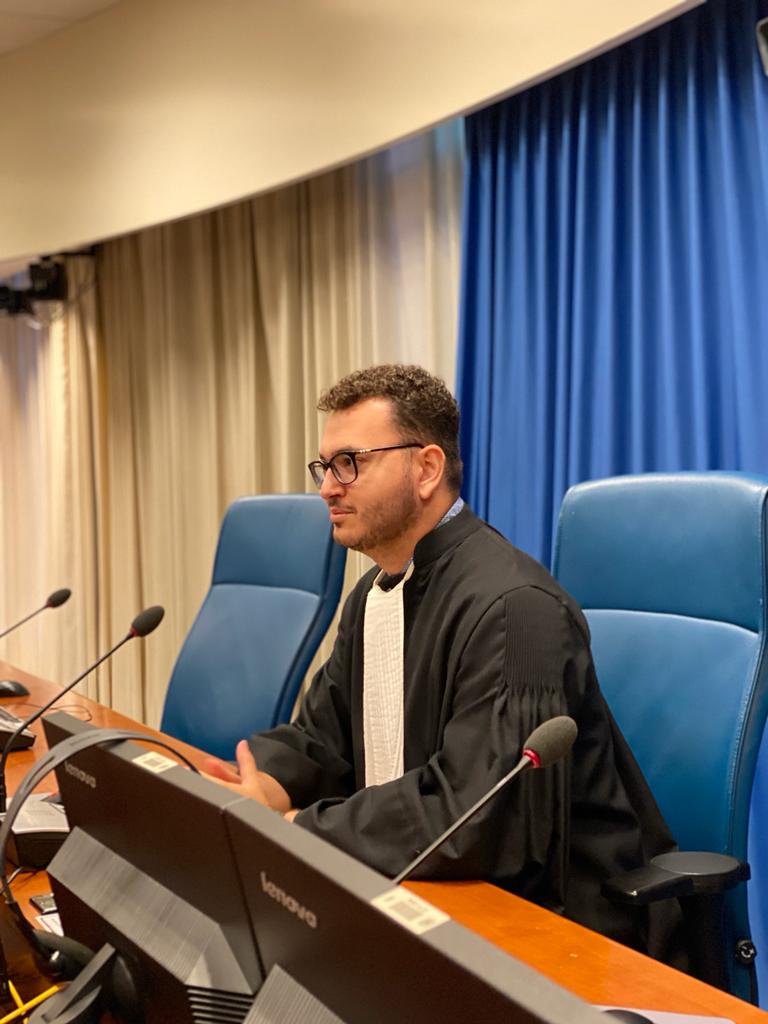Promoting international justice at the Office of the Prosecutor at the United Nations International Residual Mechanism for Criminal Tribunals
Foti Vito is a 2L student at U of T Law. In an interview with Ultra Vires, Vito shared his experience as the only Canadian law student intern with the Office of the Prosecutor (OTP) at the United Nations International Residual Mechanism for Criminal Tribunals (the Mechanism) this past summer. Vito interned in-person in The Hague through a placement with the Faculty’s International Human Rights Program (IHRP).
The Mechanism has jurisdiction over war crimes, crimes against humanity, and genocide charges related to conflicts in Rwanda and the former Yugoslavia. The UN Security Council established the Mechanism to administer the functions of the International Criminal Tribunal for the former Yugoslavia (ICTY) and the International Criminal Tribunal for Rwanda (ICTR) following their closure. These functions include hearing pending cases and appeals, overseeing post-conviction and contempt proceedings, tracking fugitives, enforcing sentences, and assisting national authorities. The Mechanism has two branches: one in The Hague, responsible for the residual functions of the ICTY, and another in Arusha, responsible for the residual functions of the ICTR.

Ultra Vires (UV): Please describe what your position as legal intern entailed this past summer.
Foti Vito (FV): As part of the Office of the Prosecutor in The Hague, I supported a team of international attorneys and prosecutors known as the “Transition Team.” To ensure as many persons as possible suspected of war crimes are brought to justice, the Transition Team assists national authorities by passing on evidence and investigative dossiers that may be useful in local investigations in the former Yugoslavia. These are case files regarding suspects investigated by the OTP where no indictments were formally issued by the Mechanism or the ICTY. Accordingly, it becomes the responsibility of relevant bodies in the national judiciaries to complete the investigations and raise indictments where appropriate.
During my internship, I had the opportunity to conduct legal research and factual analysis for an investigative case file concerning the responsibility for core international crimes committed in several municipalities within the former Yugoslavia. My main assignment was to draft an evidentiary report for use in local prosecutions. The focus was on crimes committed in a given municipality that involved the murder of civilians and the subsequent concealment of their bodies, large-scale destruction of property, and the forcible transfer of civilians.
Although the specifics of my work are largely confidential, I also worked on a range of tasks related to the continuing functions of the OTP. This included surveying the law on discrete issues, translating documents, cite-checking legal submissions, conducting oral presentations for attorneys, and attending regular team meetings.
UV: What types of skills did you use in your work?
FV: In completing my core assignment, I analyzed over 100 witness statements and cross-referenced them with documentary evidence, prosecutorial exhibits, and prior judgements from international criminal tribunals.
The hands-on nature of the work was certainly a big difference when compared to my first year of law school, especially given the size and complexity of international criminal cases, but it allowed me to develop and make use of my analytical, organizational, and legal skills.
UV: What is one experience from this past summer that will stick with you throughout law school?
FV: Although it was beyond my work in the OTP, during my time at the Mechanism I had the privilege of attending a private screening of Quo Vadis, Aida? featuring a talk with the Mothers of Srebrenica. This 2020 Bosnian film dramatizes the events of the Srebrenica genocide, and the screening took place in the very courtroom where Ratko Mladić was tried and convicted for his leading role in the genocide. It was one thing to read witness statements detailing the crimes committed in the former Yugoslavia, but it was an entirely different thing to hear the Mothers of Srebrenica describe their immense losses and their continual fight for justice ever since.
This experience will stick with me throughout law school. It taught me that justice is more than a lofty principle; it is tangible and requires defending. Without access to justice in reach, it can feel like nothing else is.
UV: What advice do you have for law students interested in this placement?
FV: For students interested in international legal placements, my most practical piece of advice is to apply as early and as broadly as possible. There are tons of great resources to help get you started early, including reaching out to upper-year students and consulting the IHRP website for past fellowship experiences.
In your applications, it is valuable to demonstrate your interest in international law through your studies, co-curricular activities, and any foreign language skills. However, internships at large organizations such as the UN are meant to be a learning experience and welcome all applicants with strong skill sets. There is no straight path to practicing in international law, so I highly encourage you to seek out any and all opportunities that interest you regardless of your background.
This interview has been edited for brevity and clarity.





